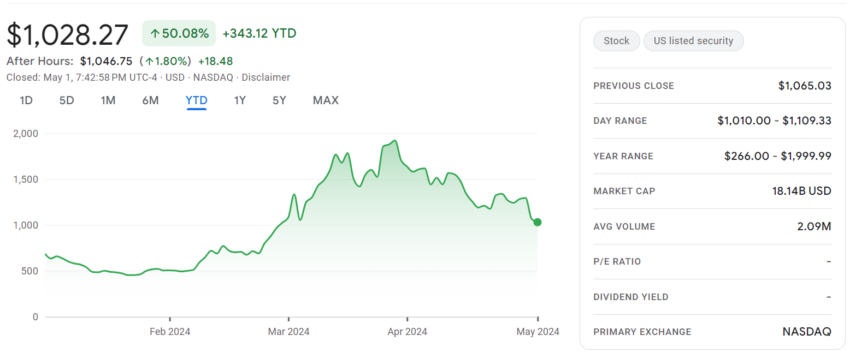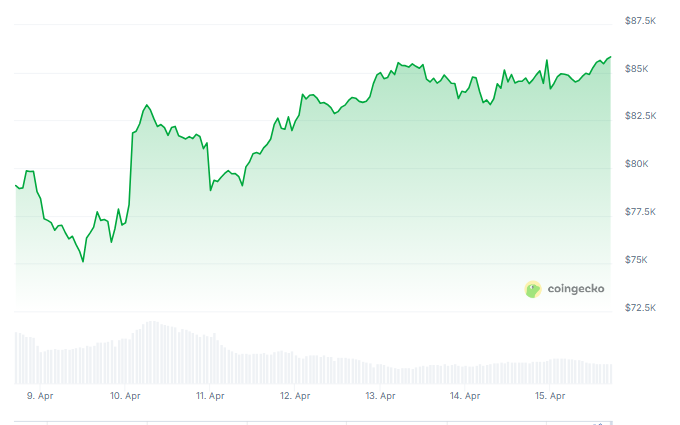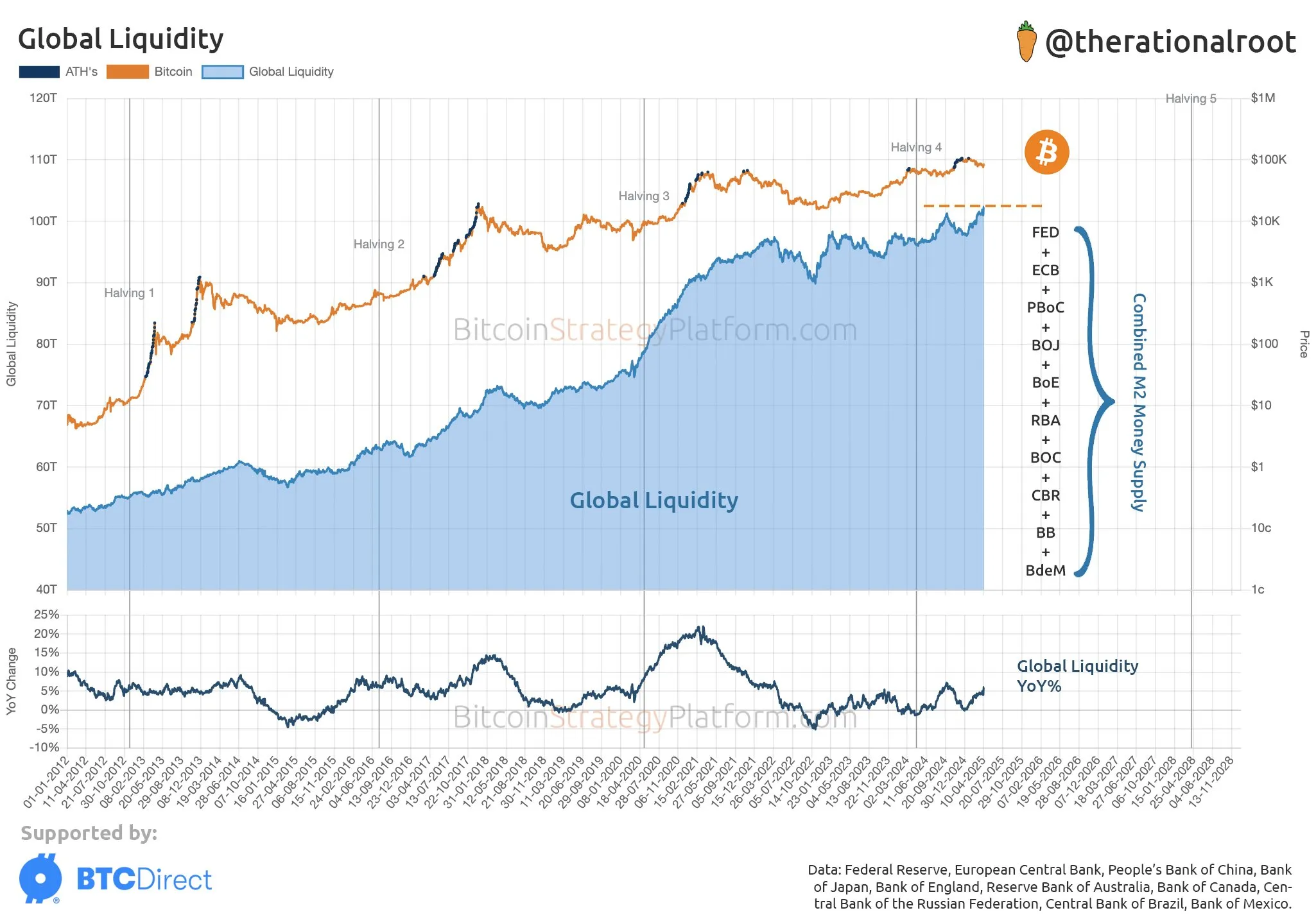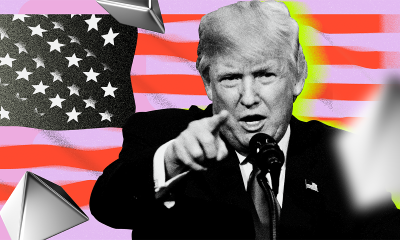Bitcoin
MicroStrategy Introduces Orange: A Bitcoin-Based DID Protocol

MicroStrategy, a US-based business intelligence and software company, has introduced a new decentralized identification protocol named Orange. This innovative protocol was unveiled at the annual MicroStrategy World event in Las Vegas on May 1.
Orange stands out by employing a novel method of using inscriptions as Ordinals on the Bitcoin (BTC) blockchain to store data related to decentralized identities (DID). The protocol utilizes the Segregated Witness (SegWit) feature of Bitcoin. It also enables documents to be created and updated with minimal restrictions on size and content.
Why is MicroStrategy’s Orange Different from Other DID Solutions?
During a segment called “Bitcoin Security,” Michael Saylor, co-founder and Executive Chairman of MicroStrategy, explained the idea behind Orange protocol.
“Our vision is to provide an internet native decentralized digital identity backed by Bitcoin. So, we want to use the open standard of DID, and we want to use the open standard of Bitcoin and put the two together … Why would we use Bitcoin? Well, it is fault tolerance, it is censorship resistance, it does use the most advanced cryptography, it’s a lot better than most people’s taskwork managers and this federated system. It is distributed … It’s open, permisionless, egalitarian, ” Saylor said.
Read more: Decentralized Identity and the Future of Web3: What To Know
Furthermore, Saylor highlighted that the protocol ensures that the decentralized identities are managed efficiently, reducing transaction fees and block space utilization—which are common concerns in blockchain operations. Yet, it is still unclear when MicroStrategy will officially launch the Orange protocol.
Based on the information on their “unofficial draft” on Github, the technological foundation of Orange is based on Bitcoin’s inscription. Orange embeds DID information directly on the blockchain, unlike other DID methods that rely on external data sources or additional dependencies. This method secures data permanence and integrity while enhancing the digital identities’ overall functionality and forward compatibility.
For instance, the Bitcoin Reference DID method (did:btcr) relies on referencing a URL to fetch DID document data. Such reliance can compromise the blockchain’s immutable nature if the URL content changes. In contrast, Orange stores additional data for the DID document directly on-chain.
Additionally, ION (did:ion) requires indexing all the IPFS data pointed to by Bitcoin transactions, which introduces more external dependencies. Orange’s use of taproot script path reveal transactions allows for storing arbitrary amounts of data in the witness of Bitcoin transactions through inscriptions. Therefore, Orange can avoid these dependencies.
Moreover, Orange enhances the security measures by distinguishing between the “wallet keys” used to sign Bitcoin transactions on-chain and the “subject keys” that authenticate the DID subject. This separation allows a third party to manage a DID on behalf of its subject or require multiple signatures. Hence, it offers an extra layer of security and control.
Indeed, while blockchain-based digital identities offer the potential for enhanced verification, privacy concerns remain paramount. Therefore, to gain deeper insights, we consulted Wendy Lopez, Latam Growth Manager at the Bitcoin wallet app – Xvers.
Lopez suggests that recursion or on-chain encryption could play a pivotal role in the development of the Orange protocol. She highlights the unique aspect of Bitcoin—where transparency exists alongside the potential to encrypt sensitive data for privacy protection.
MicroStrategy’s vision of integrating the Orange protocol with social networks and other digital platforms faces potential technical hurdles and user adoption challenges. Lopez points out that fluctuating fees could create a barrier, comparable to the cost of using the platforms themselves. However, she believes that utilizing UTXO and Layer 2 development on Bitcoin (similar to the Runes protocol) could mitigate costs and increase speed.
“For the average user, one day they won’t know they are being verified via blockchain. One day, blockchain will simply be the underlying technology and solve some problems, like verifying a human against AI,” Lopez told BeInCrypto.
Although the promise of a truly decentralized identity is clear, Lopez notes the intrigue surrounding how MicroStrategy will manage large-scale execution. This is given the inherent limitations and costs of on-chain storage in Bitcoin.
Nonetheless, the Orange protocol initiative also demonstrated MicroStrategy’s continuous support and involvement in the Bitcoin ecosystem. Earlier in February, Saylor said the firm was pivoting to a Bitcoin development strategy.
“We view ourselves as a Bitcoin development company. That means we’re going to do everything we can to grow the Bitcoin network,” he said during the company’s fourth-quarter earnings webinar on February 6.
MicroStrategy’s latest Bitcoin acquisition further solidified its long-term vision towards Bitcoin. BeInCrypto reported that MicroStrategy purchased an additional 122 BTC this April, totaling $7.8 million.
The transaction increases MicroStrategy’s holdings to 214,400 BTC, now valued at over $12.35 billion. With its holdings amount, MicroStrategy positions itself as a major player with over 1% of the finite 21 million Bitcoin supply.
Read more: What Is Digital Identity?

However, these positive developments have not yet immediately impacted MicroStrategy’s stock price (MSTR). As of May 1, the closing price of MSTR was $1,065.03. Nevertheless, over a longer time frame, MSTR has been up about 180% this year, rising from $685.15 on January 2 to reaching its peak of $1,919.16 on March 27.
Disclaimer
In adherence to the Trust Project guidelines, BeInCrypto is committed to unbiased, transparent reporting. This news article aims to provide accurate, timely information. However, readers are advised to verify facts independently and consult with a professional before making any decisions based on this content. Please note that our Terms and Conditions, Privacy Policy, and Disclaimers have been updated.
Bitcoin
Bitcoin Adoption Grows As Public Firms Raise Holdings In Q1


Public companies have added nearly 100,000 Bitcoin to their balance sheets during the first quarter of 2025, pushing total corporate Bitcoin holdings to a staggering 688,000 BTC worth $56.7 billion. According to data from crypto fund issuer Bitwise, this represents a 16% increase in total crypto holdings by publicly traded companies.
12 New Corporate Buyers Enter The Market
The Bitcoin buying spree wasn’t limited to existing crypto investors. Twelve public companies purchased Bitcoin for the first time during Q1, bringing the total number of Bitcoin-holding public firms to 79.
Hong Kong construction firm Ming Shing led new buyers, with its subsidiary Lead Benefit acquiring 833 BTC through two separate purchases – an initial 500 BTC buy in January followed by 333 BTC in February.
Video platform Rumble ranked as the second-largest new buyer, adding 188 BTC to its treasury in mid-March. In a move that stunned market watchers, Hong Kong investment firm HK Asia Holdings Limited purchased just one Bitcoin in February – a modest investment that still caused its share price to almost double in a single day of trading.
Companies are buying bitcoin, Q1 2025 edition. pic.twitter.com/qZc62N8vu5
— Bitwise (@BitwiseInvest) April 14, 2025
Japanese Firm Acquires At A Discount
While new entrants made headlines, existing Bitcoin holders also strengthened their positions. Japanese investment firm Metaplanet announced on April 14 that it had purchased an additional 319 BTC at an average price of 11.8 million yen (about $82,770) per coin.
This latest purchase brings Metaplanet’s total Bitcoin holdings to 4,525 BTC, currently valued at approximately $383.2 million. The company has spent nearly $406 million (58.145 billion yen) building its crypto stack.
Based on current holdings, Metaplanet now ranks as the 10th largest public company crypto holder worldwide, sitting behind Jack Dorsey’s Block, Inc., which holds 8,480 BTC.

BTC reclaiming the green zone in the last week. Source: Coingecko
Bitcoin Price Recovers After Brief Slump
Bitcoin trades at around $85,787 as of April 15, showing a decent performance over the past 24 hours according to CoinGecko data. The cryptocurrency has gained roughly 2.5% since the end of Q1 on March 31.
The price has bounced back from a brief drop below $75,000 on April 7. That temporary decline came after a broader market selloff triggered by a new round of global tariffs announced by US President Donald Trump.
The growing corporate interest in the top crypto comes as more companies look to diversify their treasury holdings. The combined value of public companies’ Bitcoin rose about 2.3% during the first quarter, reaching nearly $57 billion with BTC priced at $82,400 by quarter’s end.
Featured image from Crews Bank, chart from TradingView

Editorial Process for bitcoinist is centered on delivering thoroughly researched, accurate, and unbiased content. We uphold strict sourcing standards, and each page undergoes diligent review by our team of top technology experts and seasoned editors. This process ensures the integrity, relevance, and value of our content for our readers.
Bitcoin
Bolivia Reverses Crypto-for-Fuel Plan Amid Energy Crisis


Bolivia’s Ministry of Trade and Imports has rejected a state-backed plan to use cryptocurrency for fuel imports.
This move, which marks a stunning policy reversal, signals a retreat from the government’s recent push to adopt digital assets as a workaround for dollar shortages.
Bolivia Rejects Crypto-for-Fuel Scheme Amid Energy Sector Turmoil
The initial plan, announced in March by Bolivia’s state-owned energy giant YPFB, aimed to use crypto to secure fuel imports. This was in response to acute shortages of both US dollars and refined fuel.
As reported by Reuters on March 13, the proposal had received government backing at the time.
But in a statement released Tuesday, Director of Trade and Imports Marcos Duran clarified that YPFB will not be permitted to use crypto for international transactions.
“YPFB must use Bolivia’s own resources and dollar-based financial transfers,” Duran said.
Head of digital assets at VanEck, Mathew Sigel, labels this a clear U-turn on crypto policy.
“U-Turn: Bolivia appears to back away from its crypto-for-fuel scheme,” Sigel quipped.
Disclaimer
In adherence to the Trust Project guidelines, BeInCrypto is committed to unbiased, transparent reporting. This news article aims to provide accurate, timely information. However, readers are advised to verify facts independently and consult with a professional before making any decisions based on this content. Please note that our Terms and Conditions, Privacy Policy, and Disclaimers have been updated.
Bitcoin
Bitcoin Poised for Summer Rally as Gold Leads and Liquidity Peaks

The crypto market and broader economy are moving fast as global liquidity reached an all-time high in April 2025. Gold has already broken past $3,200, setting a new record. Meanwhile, Bitcoin is still 30% below its previous peak.
Amid this backdrop, analysts are taking a closer look at the link between Bitcoin and gold. Fresh data also shows strong corporate demand for Bitcoin, with record levels of buying in Q1 2025.
What Bitcoin’s Ties to Gold and Liquidity Signal for Its Price
According to Joe Consorti, Head of Growth at Theya, Bitcoin tends to follow gold’s lead with a lag of about 100 to 150 days. A chart shared by Consorti on X, based on Bloomberg data, illustrates this trend from 2019 to April 14, 2025.

The chart shows gold (XAU/USD) in white and Bitcoin (XBT/USD) in orange. The data reveals that gold usually moves first during upswings, but Bitcoin often rallies harder afterward—especially when global liquidity is rising.
“When the printer roars to life, gold sniffs it out first, then Bitcoin follows harder,” Consorti said.
That 100-to-150-day lag is notable. It suggests Bitcoin could be set for a sharp move higher within the next 3 to 4 months. The recent surge in global liquidity also supports this view.
According to analyst Root, M2 money supply from major central banks—including the US Federal Reserve, European Central Bank (ECB), People’s Bank of China (PBoC), Bank of Japan (BoJ), Bank of England (BoE), Reserve Bank of Australia (RBA), Bank of Canada (BoC), and others—has hit a record high as of April 2025.
The sharp rise points to more cash flowing through the global economy.

Historically, Bitcoin bull markets have often lined up with major increases in global liquidity, as more money in the system tends to push investors toward riskier assets like Bitcoin.
Why Bitcoin Might Outperform Gold and Stocks
Matt Hougan, Chief Investment Officer at Bitwise Invest, states that Bitcoin is not just outperforming gold but is also surpassing the S&P 500 in the long run. This indicates that Bitcoin is becoming a stronger investment option despite its price volatility.

Data also supports this. A recent Bitwise report shows corporations bought over 95,400 BTC in Q1—about 0.5% of all Bitcoin in circulation. That makes it the largest quarter for corporate accumulation on record.

“People want to own Bitcoin. Corporations do too. 95,000 BTC purchased in Q1,” Bitwise CEO Hunter Horsley said.
With rising corporate demand and Bitcoin’s strong performance against traditional assets, the stage may be set for a major rally in summer 2025—driven by peak global liquidity and Bitcoin’s historic tendency to follow gold’s lead.
Disclaimer
In adherence to the Trust Project guidelines, BeInCrypto is committed to unbiased, transparent reporting. This news article aims to provide accurate, timely information. However, readers are advised to verify facts independently and consult with a professional before making any decisions based on this content. Please note that our Terms and Conditions, Privacy Policy, and Disclaimers have been updated.
-

 Market18 hours ago
Market18 hours agoCan Pi Network Avoid a Similar Fate?
-

 Market21 hours ago
Market21 hours agoXRP Price Could Regain Momentum—Is a Bullish Reversal in Sight?
-

 Altcoin13 hours ago
Altcoin13 hours agoWhispers Of Insider Selling As Mantra DAO Relocates Nearly $27 Million In OM To Binance
-

 Market23 hours ago
Market23 hours agoTrump’s Tariffs Spark Search for Jerome Powell’s Successor
-

 Ethereum21 hours ago
Ethereum21 hours agoSEC Delays Decision On Staking For Grayscale’s Ethereum ETFs
-

 Market20 hours ago
Market20 hours agoCardano Buyers Eye $0.70 as ADA Rallies 10%
-

 Bitcoin19 hours ago
Bitcoin19 hours agoBitcoin Poised for Summer Rally as Gold Leads and Liquidity Peaks
-

 Market12 hours ago
Market12 hours agoTrump Family Plans Crypto Game Inspired by Monopoly






















